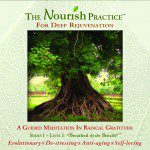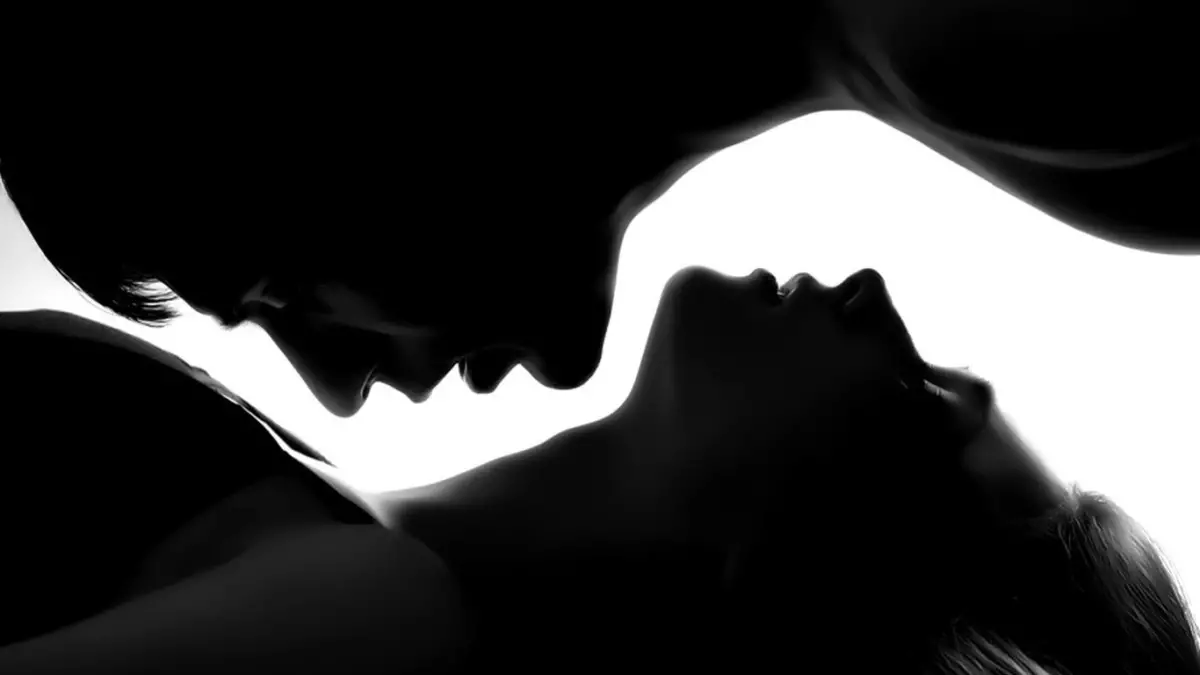14th November 2015
Contributing Writer for Wake Up World
Being in love. Ah, nothing feels better. At first, anyway, as long as it goes smoothly, which it rarely does, and ultimately shouldn’t. At least not always. And precisely for this reason, we should be careful — oh so careful!
To assess your empowerment when you are madly in love, or when your partner whom you want to hold onto is becoming an ex, or to glimpse just how helplessly out of control you feel (which most of us are in these wilds, so don’t feel badly), ask yourself this question: “If I suddenly discovered the person of my desire is a sociopath or a drug addict or a murderer — or whatever hyperbolic assessment would otherwise reasonably be a deal-breaker for you — how would I feel about them?” Is there any news that could truly rupture your affiliation from what you know on some level of your being — either obviously or deep in your gut — to be true and ultimately right?
The purpose of this extreme question is to gain insight into how crazy-blind our hearts can be, how attached we are (for better or worse). And to shine some light on the next logical consideration: Is acting out our extreme feelings the best course of action for our eventual wellness?
[pro_ad_display_adzone id=”110028″]
While we might feel crazy out-of-control in love, we can help ourselves. We don’t have to act recklessly and sell ourselves out. And in this choice, however tough, is where our power lies. We can choose to lessen the fire of insanity and intensity by resisting, or moderating, our pursuit of a relationship that is new or doomed. We might feel insane doing so, but at least the insanity is to land us on the path to recapture our sanity, not to further derange us by only hearing our heart’s passions.
So, what’s your response: Are you be able to walk away from danger, from what in your gut you know is wrong? If you are unable to control your heart even when other parts of you know better — which is normal, but still unsettling — you join a long legacy of lovers who came before you. You join the open-theatre of tragedy and exaltation, get a first row seat to experience the crazy nature of our hodgepodge triune brains, each part competing to express its nature. Our primitive, reptilian brain governs aversion and our survival reflexes. The emotional/limbic mammalian part of our brain lights up during love’s desire. And our self-reflective, reasoning neocortex that imagines and self-reflects, analyzes and tries to make sense of it all to direct us in the way the lookout captain thinks best — if the captain is awake in his tower!
Decisions, Decisions
Many of us find ourselves in milder, yet still heart-wrenching and potentially deal-breaking scenarios with good people, not sociopaths and criminals. We might be in love with a partner who wants children, and we don’t. Or one of us wants to live in the city and the other prefers the sticks. Your beloved would rather be at home and quiet, while you want more adventure and activity. Your partner might be prone to lying and outbursts of aggression, or emotional numbness, more than you want to tolerate. You may have lost your attraction; he might still desire you.
While in the throes of love and attachment, it’s tough to get straight on what is ultimately right or wrong for us. And trying to determine if your biology prevents your good senses brings us back to the original conundrum. When we are spiked on hormones and batshit crazy for our lover, our heart doesn’t care about the consequences, differences, and looming pitfalls, and how these will stack up when the honeymoon phase draws its curtains and the drama begins. Before then is a good time to ask the extreme question, and other questions, to see where you stand on more common compatibilities.
So, once we realize the chasm between heart and mind, biology and soulfulness, what to do? I began wondering about this long ago, in a short poem that is now part of series of poem cards on love:
Is love a trick
Nature uses
To procreate?Or sex a muse
God creates
To make more love?
I don’t have the final answers, or any for that matter, or as much self-control as I wish I did. But I have learned how to be more skillful in these domains. Love’s questions, especially, are perhaps best lived into, as the great poet Rilke recommended. For the rift between heart and mind when we are in love is not a black and white territory. Yet, shades of grey can go a long way to feeling better and more sane in such unruly predicaments. It’s not so much that we have to fight the truth of our hearts as much as restrain acting on their desire for the mere knowledge that they know not what they do. For, our hearts are truthful and honest… in their own little world. The rub is that a bigger world exists! The world of all the rest of our wellness, that also matters!
Our mind, when used in the right way, can actually save our heart, and sometimes our very life.
So, please allow yourself into this experiment-for-perspective, especially if your heart is torn-up. Imagine that your lover has qualities that every part of you should be turning or running away from. If you are still absolutely crazy about and magnetized to them, and not willing to change your course of interest, it’s likely that your mindless heart is a runaway lunatic that needs some serious talking to and reigning in! For, this desire is not sustainable, except for if you have done your due diligence and claimed a partner worthy of your long-term investment. Otherwise, learning tough lessons might be the limit of its worth. Unless, of course, you are a person that can come and go without getting attached, which often points to a sadder story for other reasons, such as being emotionally shut-down.
When acting on our good knowing is obscured by intense feelings, this is when the head needs to step in on the heart’s behalf. We need to yell intelligence to ourselves when in love! It’s not that our hearts are wrong; it’s that we are wrong to believe them alone. When we don’t pause and exercise tough love with ourselves early on, we can end up super-attached to a person we discover all too late to be not right for the rest of us. The sex might be “great,” or we might get other superficial perks, but sex and perks doesn’t carry a soulful relationship. And if you think that a life without soul, deep compassion, and truer love is worthwhile, think again. Here’s a song by Jessica Lea Mayfield about all this: www.youtube.com/watch?v=ERvPmR4Q4OE
The battle to reason with ourselves is not easy, and the heart will suffer either way: in its attachment to danger and mistreatment or in its longing for what it can’t, and likely shouldn’t, have. This suffering is the cost of loving. Our challenge is to cut our losses and choose wisely in what we invest our heart and soul, preferably before we fall head over heels, or too head over heels. And, this is why it’s important to go slowly in love, even if it makes us a little crazy to hold back. But enough heartbreak instills this wisdom over the years. And if we can’t go slowly, then let’s at least ask the tough, deal-making and deal-breaking questions to look at what we’d rather postpone. Examples of these questions are found here.
In love’s elation and suffering we join those who have cathartically penned and expressed their enamored libations in some of the best poetry, theatre, and artwork ever produced. For, it is love that drives our lives, either through its presence or its absence. And those who cannot or will not risk love, indeed might lose and suffer more than those who do. The trick is to be just a little smart about it.
The Poetry of Love
Let us also not forget that if we love and lose, as we all do to some degree, sorrow itself bears hidden gifts. So, we not only get to let our hearts love, but our sorrow bestows on us the breaking-open that deepens and enriches our lives in the inevitable face of loss we are challenged to endure. This courageous healing path happens to be the subject of my new recording, called Healing from Heartbreak. So, if you’re broken open, or feel you need to be, to expose yourself to life’s rawness, you might have a listen. These famous lines by the 19th Century poet Alfred Lord Tennyson also share some of the courage to love vulnerably:
I hold it true, whatever befall;
I feel it when I sorrow most;
‘Tis better to have loved and lost
Than never to have loved at all.
Despite the sorrow, love is worthwhile. Our lives flow like the trees through the seasons: holding on and letting go, fruiting and withering. None of us believes that a gnarled tree is less beautiful, and like it, we grow more beautiful through the gnarly passages of loving. We hold onto what we feel our life depends upon, and to save our lives, we also have to learn to let go… which brings to mind more poetry, this time Mary Oliver’s American Primitive:
To live in this world you must be able to do three things:
to love what is mortal;
to hold it against your bones knowing your own life depends on it;
and, when the time comes to let it go, to let it go.
The expression “love is blind” is also scientifically accurate, for it has been established that our emotional brain and our reasoning brain are largely disparate, in other words, not on the same page. Such is the nature of the heart. And, lo and behold, poetry is a primary tool to join the Mars and Venus of our rational mind and runaway hearts, our most outer neocortical upper brain and our limbic mid-brain that governs our emotions, respectively. Poetry puts into words the feelings and seemingly unspeakable nuances and intimations of love that often escape both reason and everyday description. This way, through art, we begin to understand the unspeakable, the uncontrollable, the force that leaps unbidden from our chests towards an innocent other! And in the cognition of a poem, a dialogue between reason and emotion ensues, if only by naming and recognizing the wild places that live inside us — without needing to change them. And sometimes, just by acknowledging and knowing them, they adjust organically by our mere recognition.
I acknowledged this runaway nature of our hearts in a poem aptly named “Desire,” from my first collection of poems titled Nature of the Heart. Here are its first and last stanzas:
My heart a wild beast
Run away from me.
It cares not for marriage
And finite things
The mind can grasp,
Nor for cautions
Of obliteration
It cannot see…Yes, this is the awesome and careless
Wonder of my love.
Indeed these reins of thought
Too short to contain
The free-ranging savage
Inside my chest,
For this sleek and ravenous creature
Of pure desire.
Relationships will always exact a toll on us, and thus we grow, if we pay attention and tend to our hurts. Love is as crazy and beautiful as the rest of life, and to this end, I leave you with a last poem from my second collection, conveying the seemingly incomprehensible befuddlements of loving (and if you don’t laugh, you better smile!)
In Love
I want to be honest
But not foolish,
And foolish but not weak.
Oh, and I want to be weak
But not pathetic
And pathetic but not lost.
I want to be lost but still home
And home but not imprisoned.
I want to be strong
But not separate
And separate but still together.
Insane, but still truly
In love.
Soul Mates
The overwhelming feelings of insurmountable desire subside to a great degree after the hormone rush of the honeymoon phase of relating, anyway. So if you just can’t get yourself to think straight for a spell, at least make a mental note that at some point, sooner than later, it will be a good idea to grab yourself and ask the hard questions — or otherwise be more likely to hit the hard, rocky bottom. Hopefully, by then you’ll be unattached enough to muster the power and courage to lovingly walk away if you find yourself in a relationship that doesn’t seem it will improve your life in all, or almost all, ways.
Yes, being in love is great. Being in love with someone who aligns with your deepest desires, values, logistical practicalities, purpose for being alive, and soul trajectory is even better, and less likely to leave you tragically heartbroken and deserted. If you don’t know what these soul qualities are for you, it’s best to find out sooner than later. Yet, we gain clarity on these drivers of our life both by being alone, and in relationship. They exist inside us, but often need both pleasure and pain to be drawn out of us. When we haven’t discovered these inner resources and our callings, our own life is limited and our relationships bound for some necessary (yet otherwise avoidable?) rude awakenings.
What’s the answer, then, to loving ourselves and loving others, when to keep on and when to let go?
Keep working on yourself as much as you can, especially when not in an intimate relationship with another. Intimacy with yourself will serve you in every way and ultimately make you a more intimate partner. Also enter and learn through the relationships you have to by keeping your eyes open. After a time, you’ll just be interested in more quality relating. You’ll know yourself better, enough to discipline your actions and make different choices with different results. Ultimately, most of us want to be with someone who shares our passions, our style and trajectory of growth. When we know our own way of living and find someone we can share it with, we can fall in passionate love more wholeheartedly, with less nagging apprehension.
In the end, we can’t largely control falling in love, or the pitfalls of heartbreak — nor should we. What seems wrong is often right for us in the long run, if we can break open and learn through it. If we don’t learn — by unilaterally blaming others and defending our ego, or running away and remaining in denial of our shortcomings — then we usually repeat the pattern and suffer needlessly. Learning and inner growth redeem the pain. When it hurts the most, our growth is maximized. This is when we need humility and vulnerability, if only with ourselves. Again, help on the path of heartbreak, finding the gifts in pain, and finding our purpose and path in life, can be found here.
To better align your head and heart and instill some life-saving discipline, practice yelling the facts to yourself. And practice resiliency by letting yourself feel it all. Ultimately, we choose what we are ready for. So, challenging ourselves to learn, grow, and act on our wisdom is the frontier of what we are attracted to and truly desire. This is no easy path. But the path of love wholeheartedly minded is most rewarding and truly fulfilling.
With all this said, we still may not be able to choose loving the right person, to leave the wrong person, to see the pitfalls, or to love ourselves more than we do our lover. And it’s okay, we’ll get there, or closer. Maybe not today. But maybe tomorrow, the next day, or next week, as long as we fight the good fight to be kind to as much of ourselves as possible, by putting the whimsy of love to the test of enduring loving. Even if we fall into love blindly, as we arguably must, we don’t have to remain blind and continue falling.
The more we get to know our deepest selves and the signature of our deepest callings, the better we can both identify and embrace what is more enduringly right for our whole selves, as well as let go of what is not. And when our hearts pound and pine for someone that lines up with our deepest desires, cares, and aspirations in life — our soul trajectory — a truer, falling into and outpouring of love can be ours.
The Nourish Practice
 Jack Adam Weber’s “The Nourish Practice” is an easy, guided meditation-Qi Gong practice in radical gratitude and self-love. It is an Earth-based, body-centered practice — at once physiological and ecological — that is deeply relaxing and replenishing, especially for modern-day burn-out syndrome, and requires little physical effort. It “resets your nervous system” and fosters a rich inner life.
Jack Adam Weber’s “The Nourish Practice” is an easy, guided meditation-Qi Gong practice in radical gratitude and self-love. It is an Earth-based, body-centered practice — at once physiological and ecological — that is deeply relaxing and replenishing, especially for modern-day burn-out syndrome, and requires little physical effort. It “resets your nervous system” and fosters a rich inner life.
You can purchase The Nourish Practice as a CD or Digital Download here.
Previous articles by Jack Adam Weber:
- The Modern Shaman: Fierce Love at the Frontier of Madness
- Arrogance in Relationships: How to Deal With and Heal It
- 11 Reasons Why Hippies (Not Psychos) Should Rule the World
- The Monsanto Years: Singer Neil Young Rips Into GMOs, Big Biz and Conformity
- ReVOLUTION: When Enough is Enough
- Sex – Truth and Dare, Pleasure and Purpose
- Relationships: The Costs of Staying When We Should Leave
- Emotional Work
- Yin Yang — Ancient Wisdom for Personal and Planetary Transformation
- Heartbreak – Loving Ourselves Through Difficult Times
About the author:
 Jack Adam Weber, L.Ac. is a Chinese medicine physician, author, celebrated poet, organic farmer, and activist for body-centered spirituality. He is also the creator of The Nourish Practice, an Earth-based rejuvenation meditation. Weber is available by phone for medical consultations and life-coaching.
Jack Adam Weber, L.Ac. is a Chinese medicine physician, author, celebrated poet, organic farmer, and activist for body-centered spirituality. He is also the creator of The Nourish Practice, an Earth-based rejuvenation meditation. Weber is available by phone for medical consultations and life-coaching.
You can connect with Jack Adam Weber at:
- Facebook: Facebook.com/JackAdamWeber
- Twitter: Twitter.com/JackAdamWeber
- Email: [email protected]
[pro_ad_display_adzone id=”110027″]









